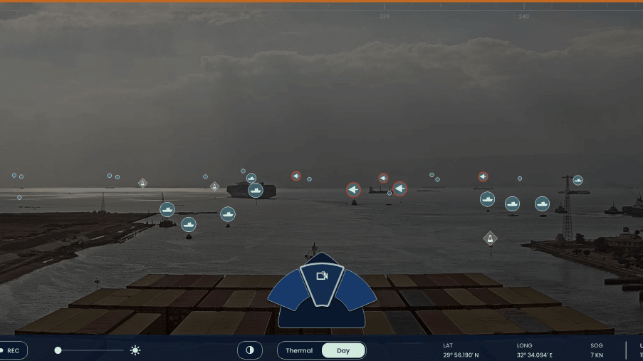Study: AI Situational-Awareness System Reduces Close Encounters

Advocates of situational-awareness / navigation-assist tools have long argued that AI technology can make shipping safer, and now it appears that they may have the data to prove it. In an analysis of navigation outcomes, Israeli startup Orca AI found that close encounter events declined by 27 percent and sharp maneuvers decreased by 22 percent aboard ships using its collision avoidance system.
The analysis was conducted on 110 tankers, boxships, bulkers and ro/ros which were equipped with the Orca AI platform throughout 2022. The data set covered 10 million nautical miles of navigation in open waters, and an average of three close encounter events every 1,000 nm sailed. Each close encounter was evaluated by CPA, TCPA, crew reaction time, average speed over ground, average cross-track error and weather conditions.
"The masters, officers and fleet managers we worked with quickly realized that Orca AI generates a real, tangible impact, and helps to mitigate the associated costs of safety incidents, downtime and reputational damage," said Orca AI CTO and co-founder Dor Raviv. “The impressive numbers are a result of our cutting-edge technology, and a close collaboration with our innovative and forward-thinking customers."
Orca AI also found that the reduction in sharp maneuvering and speed change helped operators achieve a 66,000 tonne reduction in CO2 emissions, boosting CII performance and furthering their climate goals.

that matters most
Get the latest maritime news delivered to your inbox daily.
Orca AI's system draws on computer vision technology, onboard infrafred and visible-spectrum cameras, and advanced data processing to identify and evaluate marine traffic situations. Its shipboard nav-assist tool informs the crew of impending hazards ahead, and its shipmanagement tool allows the home office to watch the crew's navigation performance and COLREGS compliance, including benchmarking against the fleet.
This system makes navigation recommendations to the crew, but well-financed competitors are racing to develop autonomous navigation systems that can make and execute collision-avoidance decisions without the crew. South Korea's Big Three - HD Hyundai, Samsung Heavy Industries and DSME - are all testing in-house autonomy systems, with assistance from class and from third-party technology vendors.
